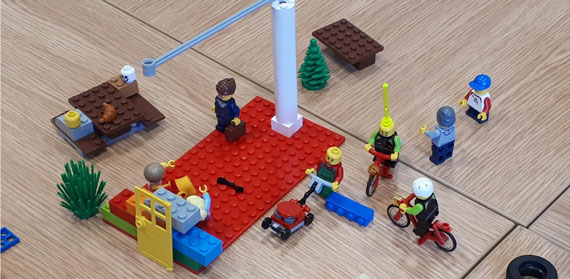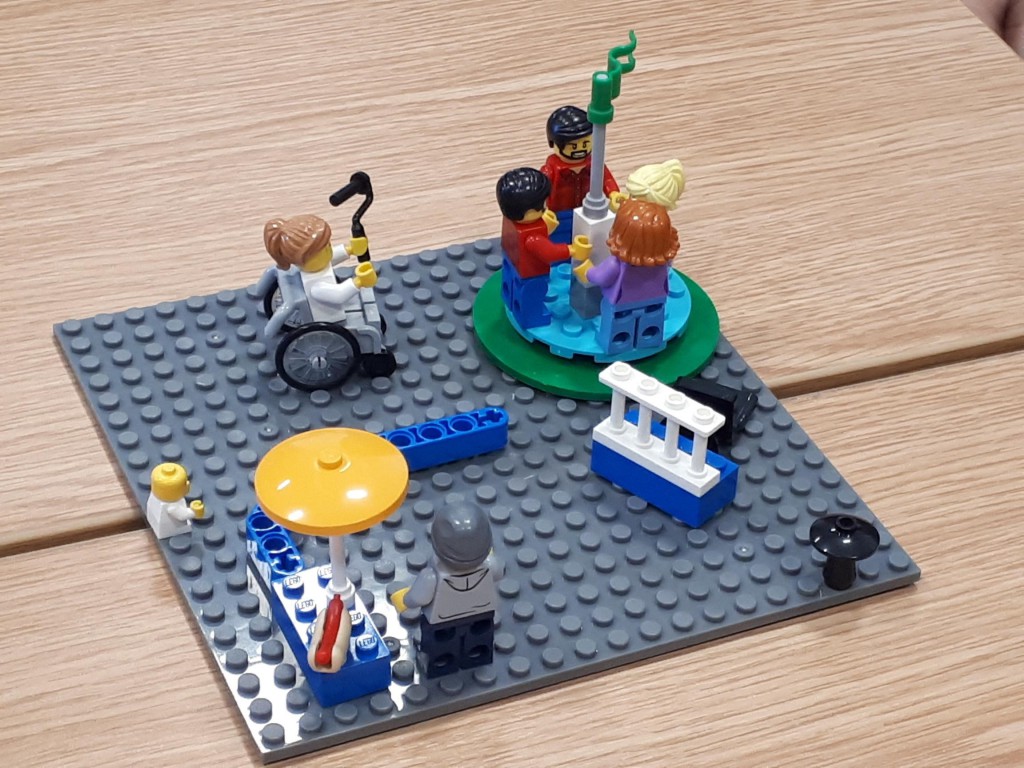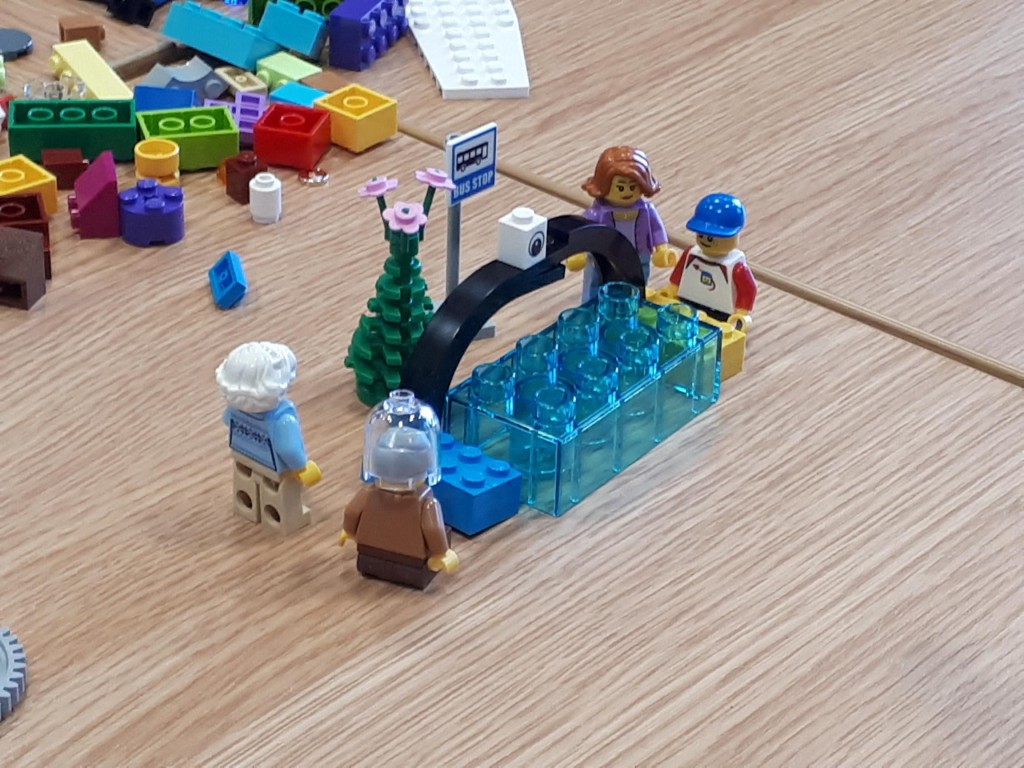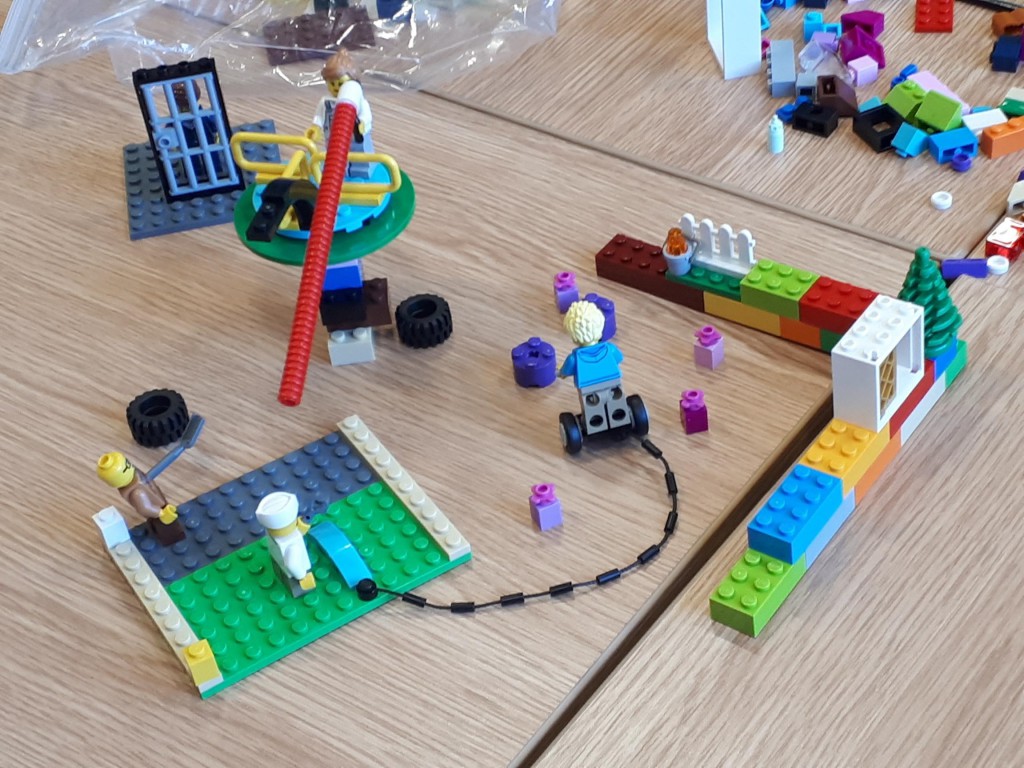Guest post by Dr. Gemma Pearce and Paul Magee, Centre for Research in Advances in Behavioural Science
Lego is famous for it, marketing companies love it and Coventry University is ahead of the game with it in their teaching and research. And now we want to help people who work in welfare – including in healthcare, social care, youth services and education – harness its power more effectively.
We’re talking about co-creation – an increasingly popular way of working that sees customers, patients, colleagues and others involved in decision-making and development of the very product or service that they will ultimately use. People gather together to share their experience and pool their individual knowledge to establish what a problem really is. They then use this shared understanding to find a way to resolve it. This is instead of following the high risk notion of ploughing on with creating or developing a product or service in isolation only to discover the people who will need or use it, don’t like it.
For Lego co-creation involves a website which allows customers to contribute new designs and ideas for potential brick creations, as well as vote and give feedback on each other’s’ projects. Creative methods like Lego, modelling clay, poster making are just some examples of co-creation tools that can be used as a group to identify problems and generate ideas and solutions, allowing people to work together on the same level playing field and think outside of the box more. Although it is a great opportunity to have a play, it is considered serious play. When people who use and deliver services and products work together in this way, like in healthcare or education, the end results are more likely to work in practice for the long-term and solve genuine problems.
At Coventry University, it’s signified by a variety of initiatives involving the local community, such as the HOPE Programme that helps families living with autism, or the COMODEL project developing technologies to support older people living independently.
We believe this approach works in the welfare sector, pushing forward improvements in organisations which have faced budget cuts and constraints in resources. It could instigate more customised and cost effective solutions and services that fit better with the needs of members of the public. Yet at the moment few welfare organisations have adopted this practice. Those that have incorporated co-creation into their way of working, don’t tend to use it to its full potential, or it is not consistently used across the country. That’s why we’re part of a major project to look at the use of co-creation within welfare organisations and to design a course for people working in the sector to help them implement this style of working.
It has been funded by Erasmus+, the EU’s programme for education, training, youth and sport, and involves partners in Denmark, France and Portugal. As this is all about co-creation, we have practiced what we preach and have been talking to people working in welfare from the beginning and will continue to gather feedback along the way. The first stage of the project was to carry out a scoping exercise to look at how co-creation is used in different organisations across all four countries, including the UK.
We asked people across the four countries what they wanted included in a training course and how it could help them. Some people are still not prepared to work in this way because it’s different to how they have always operated. They are a little bit stuck in the mud, shall we say. However, others are leading the way and we want to learn from the great things they are doing and incorporate these into our training.
Everyone we spoke to said they’d like more training on how to include people from earlier on in the process and through the whole decision-making journey. They all wanted help to think more about who can be involved and what tools there are to help them. What was evident was there are still many opportunities missed.
The first version of this training course has now been developed and we are starting to test it out across the four countries. We will gather feedback from attendees and trainers along the way to continue to improve this course. Also keep an eye on our website as we will be adding more and more co-creation tools on there. One of the key elements of the course will be its flexibility. It will be internationally relevant and suitable for any welfare organisation, from health care to education.
The course is designed as four days, with about a month in between each training day. The idea is that people can have a go at putting the co-creation activities they have learnt into practice during the month between each training day. The contents of the course can also be adapted depending who is attending it. At the end of the three-year project, which runs until August 2019, we plan to hold a co-creation themed conference where we will explain what we’ve learnt and how the course will work. We’ll open this out further, inviting others to join in the conference, sharing our ideas about co-creation together.
It will be the website that will be the vital tool here; a one-stop-shop providing people with the information they need to help make co-creation work for them. All the training resources will be available online. Co-creation could give people and their families the chance to work alongside healthcare professionals, commissioners, charities and local service providers to design and feedback on their care packages. Or it could give students the opportunity to work alongside their teachers to develop their curriculum.
We hope that with our help, welfare organisations across Europe will start putting these methods into action. Everyone should be involved together as a team from the beginning and all the way through. And we believe the patients, families and staff will then notice the difference this makes on the services they use and provide – and their day to day lives.
You can follow updates on the project by visiting the website http://www.ccw-project.eu/, by registering for our newsletter http://www.ccw-project.eu/news/, and by following us on Twitter at @GemmaSPearce and @Paul_IDTU







Comments are disabled